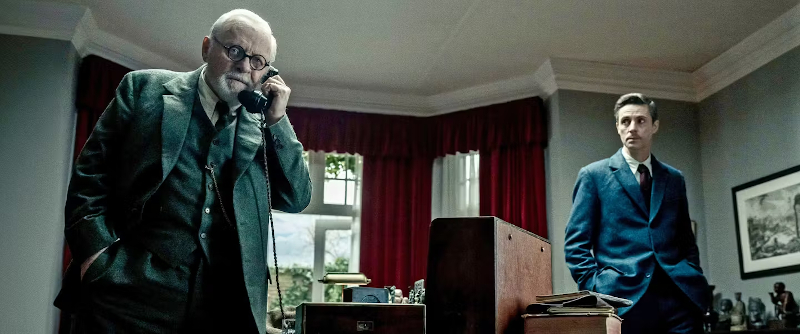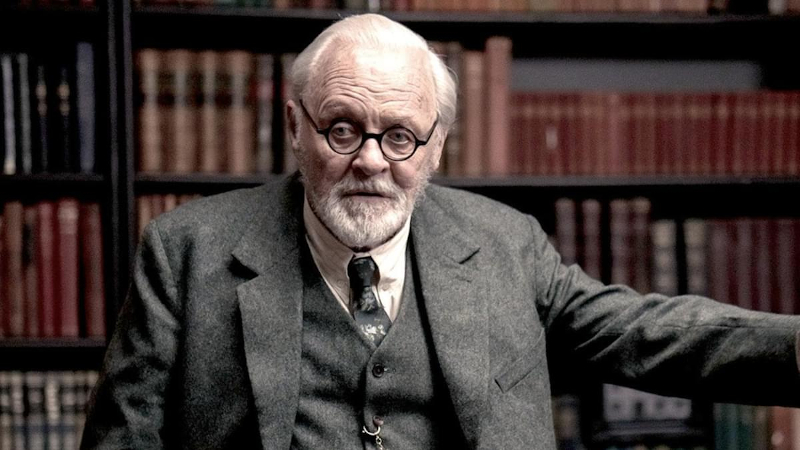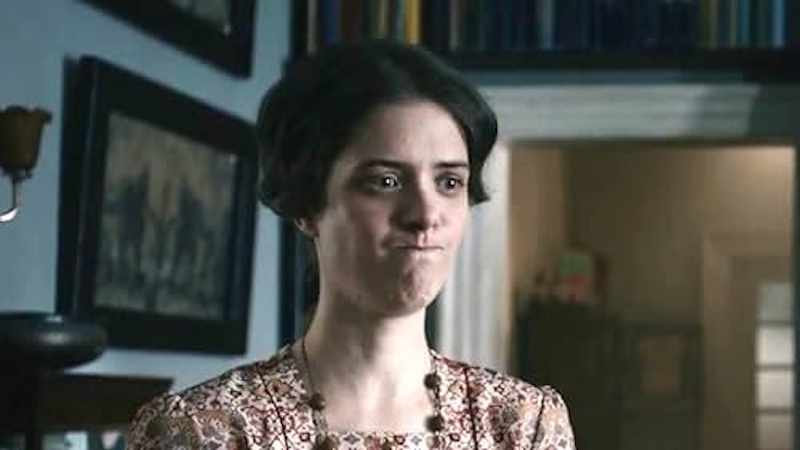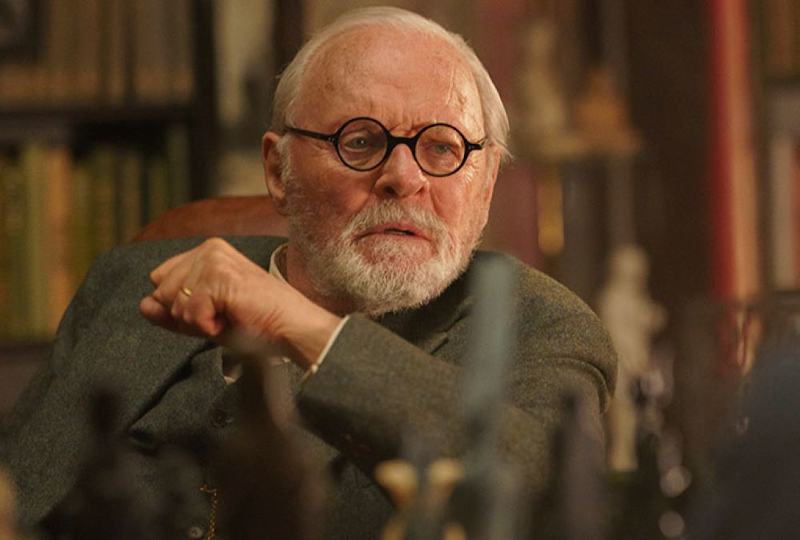Director – Matthew Brown – 2023 – UK – Cert. 12a – 108m
****
Celebrated psychoanalyst Sigmund Freud is visited in the last month of his life, living in Britain, by young Oxford don and Christian apologist CS Lewis – out in UK cinemas on Friday, June 14th
September 1939. Chamberlain has issued his ultimatum to Hitler, and Britain waits to find out whether it will shortly be at war with Germany. Celebrated psychoanalyst Sigmund Freud (Anthony Hopkins), recently moved to Britain from Vienna to escape the Nazis, keeps turning the radio on and off in the hope of an update from the BBC. He is also expecting a visit from a young Oxford don, CS Lewis (Matthew Goode), “the Christian apologist”, with whose views he profoundly disagrees.
Lewis has written books including a parody of Bunyan’s The Pilgrim’s Progress called The Pilgrim’s Regress, which is mentioned here, and the first book in his science fiction trilogy Out of the Silent Planet, which isn’t. He has however yet to either give his BBC broadcasts about the Christian faith, which will later form the basis of his most celebrated apologetic work Mere Christianity, or write his Narnia children’s fantasy novels.

Played by Matthew Goode, Lewis comes across as youthful, good-looking and earnest. Played by Anthony Hopkins, Freud is a man with health issues nearing the end of his life, whose mind nevertheless remains as razor sharp as it ever was. Both men are highly intelligent. The casting of Hopkins in this role is particularly fascinating because over three decades ago he played a much older version of Lewis in Shadowlands (Richard Attenborough, 1993). If you’re familiar with that film, watching Hopkins as Freud encounter the young CS Lewis has a distancing effect because you can’t but help remember him in the other role too. (He was very good as Lewis in the earlier film, and he’s very good as Freud in this one.)
The film’s dialogue is unafraid to tackle the different, often radically opposed views and ideas of the two men, yet somehow (is it to do with the script? Is the film trying too hard not to upset potential audience members?) the debate is nowhere near as engaging or challenging as the experience of reading Mere Christianity, even though some of the ideas expressed by Lewis are the same.

More impressive, stripped of any religious / psychological / philosophical debate, is the interplay between the two men, with Freud as the old curmudgeon set firmly in his ways while Lewis is the much younger upstart whose star is on the rise and who, in the space of the two men’s evening-long meeting, seems to be genuinely concerned for his companion’s health and welfare (which, verbiage be damned, is what Christianity is ultimately supposed to be about: deeds not words).
The piece is based on a stage play, and I feared beforehand that the film adaptation it might feel stagebound, limited as it is to a single set, two men in a single set. Yet the screenplay does an admirable job of opening the play out. For one thing, flashbacks reveal something of the life so far of both of the two men. We glimpse the Inklings, the small group of writer who were also Christians, who met in an Oxford pub to discuss one another’s work, not to mention part of a conversation between a pre-conversion Lewis and his Catholic friend and fellow academic J.R.R. Tolkien (Stephen Campbell Moore).

A much more extensive subplot about Sigmund’s daughter Anna Freud (Liv Lisa Fries) explores her and her father’s complex relationship, which includes the fact that she is part of a lesbian couple, a sexual situation of which her father strongly disapproves and which she must find a way of forcing him to accept as part of who she is. This is tempered by Anna’s attempt to buy some hard to procure medicine, which Sigmund needs urgently. We also see a flashback to their life in Vienna, where the Nazis visit the family home to take him away, only for her to insist they take her instead, since he is getting on in years.
That said, the centre of the narrative is undeniably the meeting and discussion between the two men. Although, overall, that important element proves both likeable and engaging, somehow I felt I wanted more out of their intellectual sparring, given the importance of the issues they talk about, which is fundamentally what I came to the film for. Still, Hopkins gives a bravura performance, the film does a great job of capturing the feelings and emotions of people in Britain in the day or two immediately before the declaration of war with Germany, and you won’t ever be bored.
Historical note: On the date in question, Freud did apparently receive an evening visit from a young Oxford don. There is no evidence as to whether it was or was not CS Lewis.
Freud’s Last Session is out in cinemas in the UK on Friday, June 14th.
Trailer:
